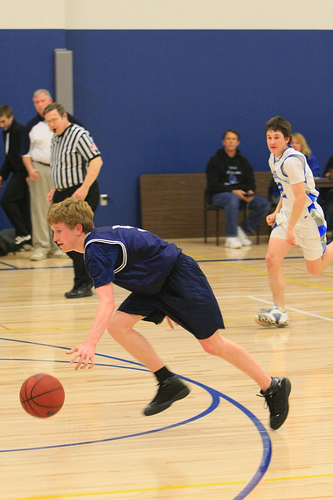The process of learning requires not only hearing and applying but also forgetting and then remembering again. – John Gray
What does that mean?
To me, this is about how we, as humans, actually learn things. We hear (and read and observe and …) and we attempt to do (to apply). But by allowing something to slip our minds, and then remembering it again, we are learning it again. Driving the groove in our mind a little deeper.
Repetition is the mother of skill. That’s why, as kids, we went over the letters of the alphabet and our addition tables so often. And by the next morning, we had forgotten most of what we learned the prior day, so we do it again and again and again. Eventually, we get the hang of it, and more and more of it stays with us. And that’s how most of us learn.
Why is repetition important?
Allow me to repeat myself. By doing something over and over again, we learn. First we get the basic idea, then we get the hang of it, then we start to understand it, then we begin to master it. I’ve been told that those stages go up by powers of 10. If we do it 10 times, we have the basic idea. 100 times and we get the hang of it. 1000 times and we start to understand it. 10,000 times and we begin to master it. That sounds about right to me.
Repetition trains our nervous system and helps us know what to do. In the military, you do drills on the skills you may well need to survive on a battlefield (strip and reassemble a gun while blindfolded comes to mind). In sports, you repeat the fundamentals that are appropriate for your game. It’s very rare to see travelling or double dribbles called at an NBA game, but in Junior High School, that’s a different matter!
Where can I apply this in my life?
Repetition helps us remember, helps us commit things to memory, helps us do the proper thing in an emergency. Quick, if you ever notice that your shirt is on fire, what do you do? If you had the training as a kid, you know the answer is “stop, drop and roll.” How many of you had a rush of memories come back when you read that phrase? Did you remember some of your old class mates, the classroom, the teacher, the smell of chalk?
I use repetition all the time. I use it with my motorcycle each time I leave the house. The route out has a left turn, a right turn, and a stop sign (and that’s just getting out of the subdivision). I practice my fundamentals each time I head out. How much have I forgotten from day to day? Less than I used to, but still a little bit goes away each time I take off my riding gear.
In the past, I have been told to quit working so hard on one learning task and work on another. This ‘rest’ gave my brain a chance to digest what it had been given, and to relax a little and forget some of the things I had learned. Just remember that if we forget some, that means we also retained some, right? The next time I went over that subject, it made a little more sense, as I was building on the things that I had retained. One spoonful at a time, I was building a mountain.
What are you having trouble learning? Have you tried doing shorter but more frequent study sessions? That worked for me. I would read a few pages, then put the bookmark just one page forward from where it started. Later in the day, I would read a few pages and in the process, reread several of the pages. I managed to get some pretty impressive retention out of that experiment.
Grab some paper and make a list of a few things you want to learn, but have been having trouble actually remembering and understanding. For each item on the list, brain storm and come up with a few ideas about how to use extra repetitions to help drive the point home. Then pick one and schedule it into your busy day. Perhaps fifteen minutes in the morning and a half an hour before bed.
Then figure out where you can get a resource to help you past the truly difficult parts. A mentor, a friend, an online study guide, a ‘net-forum on the topic in question or whatever might be appropriate. Even if they aren’t a subject matter expert, sometimes your study buddy will get the parts you miss and vice versa.
There are still some things about sub-atomic physics that makes absolutely no sense to me. If I was serious about learning it, I would get some books and read them a few times and start a list of questions. When the list got long enough, I’d find an expert (a search engine, a local University Professor or…) and ask away. And ask again, until it made sense.
You will eventually learn whatever you put your mind to learning. We are all a little different (some more so than others 8)), so we will need to determine what techniques work best for us on an individual basis. That means being brave enough to try something new, and tenacious enough to try again and again until you find out what works for you.
I hope you got some new ideas from this post, and the hope that you can figure it out. Keep learning, there is so much to know and so little time!
From: Twitter, @motivatquotes
confirmed at : http://www.brainyquote.com/quotes/quotes/j/johngray387433.html
Photo by Velo Steve







